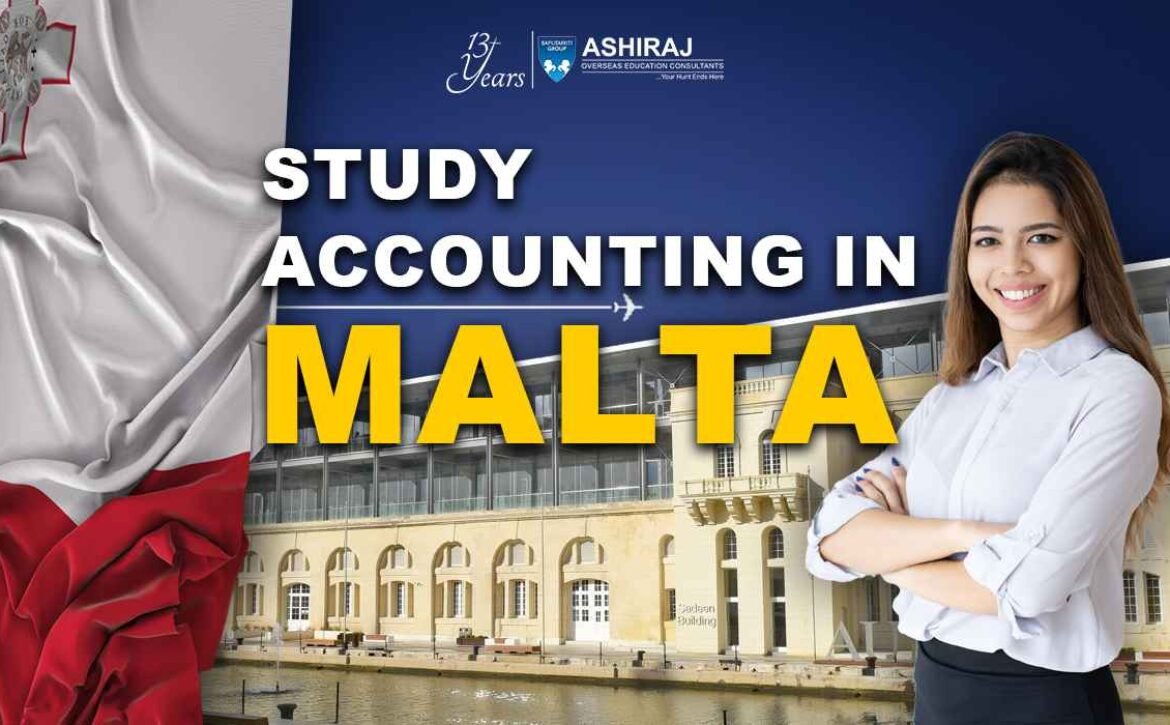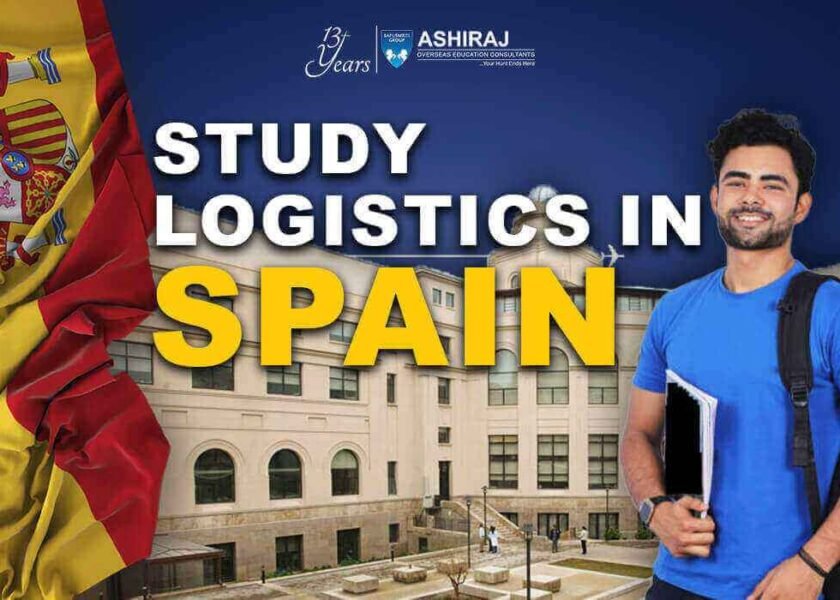
Accounting in Malta
Accounting in Malta is a dynamic field crucial for the island nation’s economic landscape. Situated at the crossroads of Europe, Africa, and the Middle East, Malta boasts a robust financial services sector, making sound accounting practices indispensable. From multinational corporations to small businesses, accurate financial reporting is imperative for compliance and informed decision-making.
In Malta, accounting principles adhere to international standards, ensuring transparency and reliability in financial statements. The country’s strategic location and favorable tax policies have attracted a diverse range of businesses, necessitating comprehensive accounting services to navigate complex regulatory frameworks. Whether it’s tax planning, audit, or advisory services, the accounting sector in Malta plays a pivotal role in sustaining the country’s economic growth trajectory.
Why to Study Accounting in Malta?
- Strategic Location: Malta’s strategic location at the crossroads of Europe, Africa, and the Middle East offers unique networking opportunities and exposure to diverse business environments, enriching accounting education.
- Robust Financial Services Sector: With a thriving financial services sector, studying accounting in Malta provides firsthand experience and insights into dynamic industries such as banking, insurance, and investment management.
- International Standards: Malta adheres to international accounting standards, ensuring that students receive education aligned with global practices, enhancing employability and recognition worldwide.
- Favorable Tax Environment: Malta’s tax policies attract multinational corporations, creating a demand for skilled accountants proficient in tax planning and compliance, offering students practical learning opportunities.
- Multicultural Environment: Malta’s multicultural society fosters a diverse learning environment, promoting cross-cultural understanding and collaboration, essential skills for accounting professionals operating in global markets.
- Career Opportunities: Studying accounting in Malta opens doors to a wide range of career opportunities in accounting firms, financial institutions, multinational corporations, and governmental organizations, offering long-term career stability and growth prospects.
- Quality Education: Malta boasts reputable educational institutions offering high-quality accounting programs accredited by international bodies, ensuring students receive a rigorous and comprehensive education in accounting principles and practices.
Top Universities to Study Accounting in Malta
University | QS World University Rankings 2023 | Type of University | Average Annual Fees | Programs Offered |
University of Malta | 501-510 | Public | €1,500 – €2,500 | Bachelor’s in Accounting, Master’s in Accounting |
Malta College of Arts, Science and Technology (MCAST) | Not Ranked | Public | €1,000 – €2,000 | Diploma in Accounting, Advanced Diploma in Accounting |
Global College Malta | Not Ranked | Private | €3,000 – €5,000 | Bachelor of Accountancy (Hons), MBA in Accounting |
European Institute of Education (EIE) | Not Ranked | Private | €2,000 – €3,000 | ACCA Qualification, Diploma in Accounting |
London School of Commerce Malta | Not Ranked | Private | €4,000 – €6,000 | Bachelor’s in Accounting and Finance, MBA in Accounting |
Studying accounting in Malta offers a plethora of options with diverse institutions catering to different academic needs. The University of Malta stands out as a public institution with affordable fees and a strong academic reputation, offering both undergraduate and postgraduate programs in accounting. Malta College of Arts, Science and Technology (MCAST) provides practical-oriented courses at reasonable fees, making it accessible to a wider student base. For those seeking private education, Global College Malta, European Institute of Education (EIE), and London School of Commerce Malta offer specialized accounting programs with varying fee structures, providing flexibility and quality education. With these top universities in Malta, aspiring accountants can find suitable programs tailored to their career goals and preferences.
Course Curriculum for Accounting in Malta
- Foundational Concepts: The curriculum typically begins with foundational courses covering basic accounting principles, financial reporting, and managerial accounting techniques, ensuring students grasp fundamental concepts essential for advanced study.
- Taxation Laws: Given Malta’s favorable tax environment, courses often include in-depth study of local and international taxation laws, equipping students with the knowledge to navigate complex tax regulations and optimize financial strategies.
- Auditing Practices: Understanding auditing principles and practices is crucial in ensuring financial transparency and compliance. Courses delve into audit methodologies, risk assessment, and regulatory frameworks, preparing students for roles in auditing firms and financial institutions.
- Advanced Financial Analysis: Advanced courses focus on financial analysis techniques, including ratio analysis, forecasting, and valuation methods, providing students with the analytical skills necessary to interpret financial data and make informed business decisions.
- Ethical Considerations: Recognizing the importance of ethical behavior in accounting, courses often incorporate modules on professional ethics, corporate governance, and integrity, instilling values essential for maintaining trust and integrity in the profession.
- Practical Experience: Many programs emphasize hands-on learning through internships, case studies, and practical projects, allowing students to apply theoretical knowledge in real-world scenarios and develop practical skills essential for success in the accounting field.
Accounting in Malta offers a comprehensive curriculum that combines theoretical knowledge with practical experience, preparing students to excel in diverse accounting roles in both local and international contexts.
Eligibility Criteria & Admission Requirements for MS in Accounting in Malta
- Language Proficiency: Applicants must demonstrate proficiency in English by providing either IELTS or TOEFL scores. A minimum score of 6.5 in IELTS or 79 in TOEFL is typically required for admission.
- Standardized Tests: Some institutions may require applicants to submit GRE or GMAT scores as part of their application. A competitive score in these exams showcases academic readiness and analytical abilities.
- Academic Qualifications: Applicants should hold a relevant bachelor’s degree in accounting or a related field from a recognized institution. Academic transcripts demonstrating strong performance in relevant coursework are usually required.
- Work Experience: While not always mandatory, relevant work experience in accounting or related fields can strengthen an applicant’s profile. Some programs may require a minimum number of years of professional experience for admission.
Table: Standardized Test Scores
Test | Minimum Score |
IELTS | 6.5 |
TOEFL | 79 |
GRE | 300 |
GMAT | 550 |
- Passport & Student Visa: International students must possess a valid passport and obtain a student visa to study in Malta. Visa requirements may vary depending on the student’s country of origin.
- Academic Certificates: Applicants are required to submit copies of their academic certificates and transcripts, including their bachelor’s degree and any relevant qualifications.
- Work Experience: While not mandatory, having relevant work experience in accounting or related fields can strengthen an applicant’s profile and may be considered during the admissions process.
Meeting the eligibility criteria ensures that students are academically prepared and possess the necessary language proficiency to excel in their accounting studies in Malta.
Documents Required for Studying Accounting in Malta
- Passport: A valid passport is essential for international students applying to accounting programs in Malta. Ensure your passport is up-to-date and will remain valid throughout your intended period of study.
- Letters of Recommendation (LOR): Most institutions require two letters of recommendation from academic or professional references attesting to your character, academic abilities, and suitability for the program.
- Statement of Purpose (SOP): A well-crafted SOP outlining your academic background, career goals, and reasons for choosing accounting in Malta is crucial for demonstrating your motivation and fit for the program.
- Curriculum Vitae (CV): Your CV should detail your educational background, work experience, extracurricular activities, and any relevant achievements, highlighting your qualifications and readiness for the program.
- Official Transcripts and Educational Certificates: Submit official transcripts and certificates from all previous educational institutions, including high school and any post-secondary education, to demonstrate your academic credentials.
- Work Experience Certificate: If applicable, provide a work experience certificate detailing your professional experience in accounting or related fields, showcasing your practical skills and industry exposure.
- Proof of Financial Resources: Demonstrate your ability to finance your education and living expenses in Malta by providing proof of financial resources, such as bank statements, scholarship awards, or sponsorship letters.
Ensuring you have all necessary documents prepared and organized will streamline the application process for accounting programs in Malta, enhancing your chances of admission. Accounting in Malta offers a diverse and enriching educational experience for aspiring accountants.
Admission Process for Accounting in Malta
- Research: Begin by researching accounting programs offered by universities in Malta, considering factors such as curriculum, faculty expertise, and accreditation status.
- Check Eligibility: Review the eligibility criteria for each program, including academic requirements, language proficiency exams (IELTS or TOEFL), and standardized test scores (GRE or GMAT).
- Gather Documents: Collect all required documents, including academic transcripts, standardized test scores, letters of recommendation, statement of purpose, curriculum vitae, and proof of financial resources.
- Submit Application: Complete the online application form for your chosen accounting program and submit it along with the required documents before the application deadline.
- Pay Application Fee: Pay the application fee as specified by the university, typically through online payment methods.
- Wait for Decision: Wait for the university to review your application. The admission decision timeline varies depending on the institution, so be patient during this period.
- Accept Offer: If accepted, you will receive an offer letter from the university. Review the terms and conditions, including tuition fees and enrollment deadlines, and accept the offer to secure your place in the program.
- Apply for Visa: International students should apply for a student visa after receiving the offer letter. Follow the visa application process and ensure all required documents are submitted on time.
- Prepare for Arrival: Once your visa is approved, start preparing for your move to Malta. Arrange accommodation, travel plans, and any other logistics to ensure a smooth transition.
Following these steps will help streamline the admission process for accounting programs in Malta, paving the way for a rewarding educational experience. Accounting in Malta offers diverse opportunities for students seeking quality education in a vibrant and dynamic environment.
“Education is the most powerful weapon which you can use to change the world.”
Nelson Mandela
Cost of Accounting Course in Malta
- Tuition Fees: The cost of tuition for accounting programs in Malta varies depending on the institution and level of study. On average, annual tuition fees for international students range from €1,500 to €6,000.
- Living Expenses: In addition to tuition fees, students should budget for living expenses, including accommodation, food, transportation, and personal expenses. The cost of living in Malta is moderate compared to other European countries.
- Accommodation: Accommodation options in Malta include university dormitories, private rentals, and shared apartments. Prices vary depending on location and amenities, with average monthly rents ranging from €300 to €800.
- Books and Supplies: Budget for textbooks, study materials, and other academic supplies necessary for your accounting program. Consider purchasing second-hand books or utilizing online resources to save money.
- Health Insurance: International students are required to have health insurance coverage during their stay in Malta. Budget for health insurance premiums to ensure access to healthcare services.
- Additional Expenses: Be prepared for additional expenses such as visa application fees, travel costs, and extracurricular activities. Accounting for these expenses in your budget will help you manage your finances effectively while studying in Malta.
Understanding the cost of studying accounting in Malta allows students to plan their finances accordingly and make informed decisions about their education abroad. Accounting in Malta offers affordable tuition fees and a high-quality educational experience in a vibrant Mediterranean setting.
Scholarships for Accounting Courses in Malta
Scholarship Name | Amount | Application Deadline |
Malta Government Scholarships | Full tuition coverage and stipend for living expenses | Varies (typically between January and April) |
University-specific Scholarships | Partial tuition coverage or stipends | Varies by university |
Erasmus+ Scholarships | Varies depending on program | Varies (typically twice a year) |
European Institute of Education Scholarships | Partial tuition coverage | Rolling basis |
Private Donor Scholarships | Varies depending on donor | Varies |
Securing scholarships can significantly alleviate the financial burden of studying accounting in Malta. The Malta Government Scholarships offer full tuition coverage and living stipends, with application deadlines typically falling between January and April. Many universities in Malta also offer institution-specific scholarships, providing partial tuition coverage or stipends to deserving students. Additionally, Erasmus+ Scholarships offer opportunities for international exchange and study abroad experiences, with application deadlines occurring twice a year. The European Institute of Education provides scholarships on a rolling basis, offering partial tuition coverage to eligible students. Private donor scholarships are also available, with varying amounts and application deadlines determined by the respective donors. Accounting in Malta becomes more accessible and affordable through these scholarship opportunities, enabling students to pursue their academic aspirations with financial support.
Career Opportunities After Accounting in Malta
Job Profile | Average Salary (EUR) |
Accountant | 25,000 – 35,000 |
Auditor | 30,000 – 40,000 |
Financial Analyst | 35,000 – 45,000 |
Tax Consultant | 35,000 – 45,000 |
Management Accountant | 40,000 – 50,000 |
Chief Financial Officer (CFO) | 60,000 – 80,000 |
Accounting in Malta offers a multitude of career opportunities with competitive salaries and growth potential. As an Accountant, individuals can expect to earn between €25,000 to €35,000 annually, while Auditors typically earn between €30,000 to €40,000. Financial Analysts and Tax Consultants command higher salaries, ranging from €35,000 to €45,000, reflecting the specialized skills and expertise required for these roles. Management Accountants, responsible for financial planning and analysis, earn between €40,000 to €50,000 on average. At the executive level, Chief Financial Officers (CFOs) enjoy the highest salaries, ranging from €60,000 to €80,000, reflecting their strategic leadership and financial management responsibilities. With a strong foundation in accounting, professionals in Malta can pursue diverse career paths and enjoy rewarding salaries in various sectors, including finance, audit, and taxation.
Frequently Asked Questions About Accounting in Malta
Eligibility criteria typically include a relevant bachelor’s degree, language proficiency (IELTS or TOEFL), standardized test scores (GRE or GMAT), and submission of academic transcripts and certificates.
Yes, there are scholarships available, including Malta Government Scholarships, university-specific scholarships, Erasmus+ Scholarships, and private donor scholarships, offering financial support to eligible students.
The average tuition fee for accounting programs in Malta ranges from €1,500 to €6,000 per year for international students, depending on the institution and level of study.
Career opportunities include roles such as Accountant, Auditor, Financial Analyst, Tax Consultant, Management Accountant, and Chief Financial Officer (CFO), with average salaries ranging from €25,000 to €80,000 per year.
While work experience is not always mandatory, having relevant work experience can strengthen an applicant’s profile and may be considered during the admissions process.
Required documents typically include a valid passport, academic transcripts and certificates, standardized test scores, letters of recommendation, statement of purpose, curriculum vitae, and proof of financial resources.
International students can obtain a student visa by applying through the Maltese embassy or consulate in their home country, following the visa application process and submitting required documents.
Yes, accounting programs in Malta are typically taught in English, and applicants are required to demonstrate proficiency in English through tests such as IELTS or TOEFL.
Application deadlines vary depending on the institution and program, but they generally fall between January and April for the academic year starting in September.
Yes, there is a demand for accountants in Malta, particularly due to the country’s thriving financial services sector, which attracts multinational corporations and requires skilled accounting professionals.




